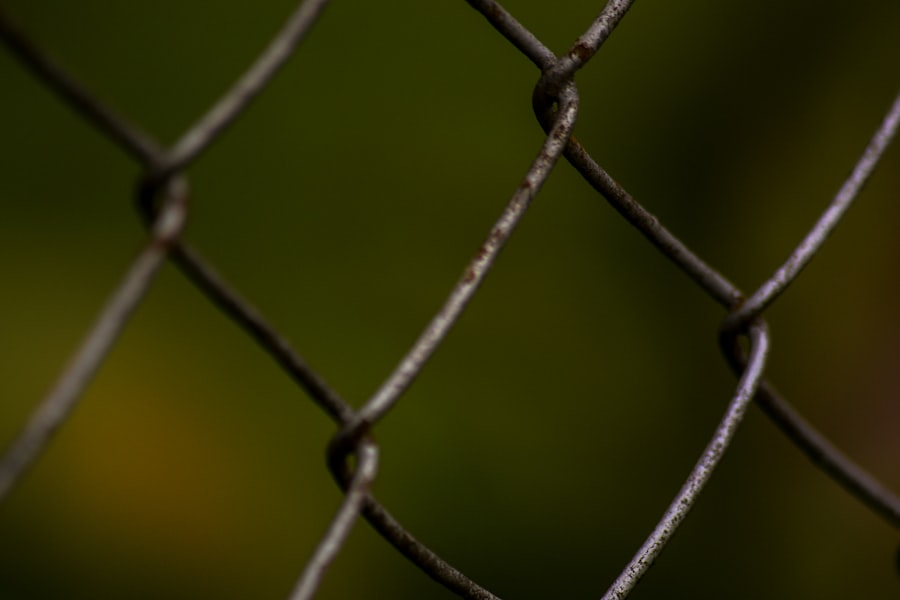Chickens possess a natural instinct to seek out nesting areas for egg-laying. This behavior is deeply rooted in their genetic makeup, serving as a protective mechanism for their eggs and offspring. Understanding this instinctual drive is essential for effective management of egg-laying locations.
Chickens typically prefer dark, quiet, and secluded spots for nesting, as these environments closely resemble their natural habitats in the wild. By recognizing these preferences, poultry keepers can better predict potential nesting sites and take preventive measures to discourage egg-laying in undesirable areas. Chickens are also creatures of habit.
Once they have established a suitable nesting location, they tend to return to it consistently unless the site becomes inaccessible or unfavorable. This behavioral pattern underscores the importance of addressing nesting issues promptly to prevent them from becoming persistent problems. By comprehending the natural instincts and habits of chickens, poultry keepers can develop strategies to discourage nesting in unwanted areas while encouraging the use of designated nesting boxes.
This approach helps maintain control over egg production and ensures easier egg collection.
Table of Contents
- 1 Providing Proper Nesting Boxes
- 2 Limiting Access to Potential Nesting Sites
- 3 Using Deterrents to Discourage Nesting
- 4 Regularly Checking and Removing Nests
- 5 Creating a Distraction with Alternative Nesting Areas
- 6 Seeking Professional Help if Necessary
- 7 FAQs
- 7.1 What are some effective ways to keep chickens from nesting in my yard?
- 7.2 Why is it important to keep chickens from nesting in my yard?
- 7.3 Are there any natural deterrents that can be used to keep chickens from nesting in my yard?
- 7.4 What should I do if I find a chicken nesting in my yard?
- 7.5 Are there any local regulations or ordinances regarding keeping chickens out of yards?
Key Takeaways
- Chickens have natural nesting instincts and behaviors that can be managed with proper understanding and care.
- Providing proper nesting boxes with suitable materials and privacy can encourage chickens to lay eggs in designated areas.
- Limiting access to potential nesting sites such as under porches or in bushes can help control where chickens lay their eggs.
- Using deterrents like fake eggs or motion-activated sprinklers can discourage chickens from nesting in unwanted areas.
- Regularly checking for and removing nests in unwanted areas can help prevent brooding and egg-laying outside of designated spaces.
- Creating alternative nesting areas with distractions like fake eggs or decoy nests can redirect chickens to lay eggs in more suitable locations.
- Seeking professional help from a veterinarian or animal behaviorist may be necessary if chickens continue to exhibit problematic nesting behaviors.
Providing Proper Nesting Boxes
Designing the Ideal Nesting Environment
One of the most effective ways to manage chicken nesting behavior is to provide proper nesting boxes that meet the needs and preferences of your chickens. Nesting boxes should be dark, quiet, and secluded to mimic the natural environment that chickens seek out for nesting. They should also be comfortable and spacious enough for chickens to comfortably lay their eggs.
Key Features of Nesting Boxes
Nesting boxes should be elevated off the ground to provide a sense of security and protection for the chickens while they are laying their eggs. When designing or selecting nesting boxes for your chickens, consider the size of your flock and provide enough nesting boxes to accommodate all of your hens. A general rule of thumb is to have one nesting box for every 4-5 hens to prevent overcrowding and competition for nesting space.
Maintenance and Hygiene
It’s also important to keep the nesting boxes clean and free of debris to ensure that they remain an attractive and desirable location for your chickens to lay their eggs. By providing proper nesting boxes that meet the needs and preferences of your chickens, you can effectively channel their nesting behavior into designated areas and prevent them from seeking out alternative nesting sites.
Limiting Access to Potential Nesting Sites

In addition to providing proper nesting boxes, it’s important to limit your chickens’ access to potential nesting sites in undesirable locations. This may involve blocking off access to areas such as under porches, in bushes, or in other secluded spots where chickens may be inclined to nest. By physically preventing chickens from accessing these areas, you can effectively redirect their nesting behavior towards designated nesting boxes.
Consider using barriers such as fencing, netting, or other physical deterrents to block off access to potential nesting sites. It’s important to regularly inspect your property for any new potential nesting areas that may arise and take proactive measures to limit your chickens’ access to these locations. By limiting access to potential nesting sites, you can effectively steer your chickens towards using designated nesting boxes and prevent them from establishing unwanted nesting habits in undesirable areas.
Using Deterrents to Discourage Nesting
In addition to physically limiting access to potential nesting sites, you can also use deterrents to discourage chickens from nesting in undesirable locations. There are various deterrents that can be effective in deterring chickens from choosing certain areas for nesting. For example, you can use motion-activated sprinklers or sound devices to startle chickens and discourage them from lingering in certain areas.
You can also use natural repellents such as citrus peels, garlic, or other strong-smelling substances to make potential nesting sites less appealing to chickens. Another effective deterrent is the use of visual barriers such as shiny objects or reflective surfaces that can create a sense of unease or discomfort for chickens, making them less likely to choose those areas for nesting. By using a combination of physical barriers and deterrents, you can effectively discourage chickens from establishing unwanted nesting habits in undesirable locations and encourage them to use designated nesting boxes instead.
Regularly Checking and Removing Nests
It’s important to regularly check your property for any new nests that may have been established by your chickens in undesirable locations. By regularly inspecting your property, you can identify and remove any new nests before they become a persistent issue. This proactive approach is key to preventing unwanted nesting behavior from becoming a recurring problem.
When removing nests, it’s important to do so carefully and without disturbing the chickens too much. This will help prevent them from becoming stressed or agitated, which could potentially exacerbate their nesting behavior. By regularly checking and removing nests in undesirable locations, you can effectively manage and control where your chickens choose to lay their eggs and prevent them from establishing unwanted nesting habits in those areas.
Creating a Distraction with Alternative Nesting Areas

Providing Appealing Options
In addition to providing proper nesting boxes, you can create alternative nesting areas that are more appealing to your chickens than the undesirable locations they may be inclined to choose. This can be achieved by providing additional nesting boxes in different locations that meet the needs and preferences of your chickens. By offering a variety of nesting options, you can encourage your chickens to choose designated nesting boxes over undesirable locations.
Mimicking the Natural Environment
Consider placing the alternative nesting boxes in quiet, secluded areas that mimic the natural environment where chickens would naturally seek out for nesting.
Distracting from Undesirable Locations
By creating alternative nesting areas that are more appealing to your chickens, you can effectively distract them from choosing undesirable locations for nesting and encourage them to use designated nesting boxes instead.
Seeking Professional Help if Necessary
If despite your best efforts, you find that you are unable to effectively manage and control your chickens’ nesting behavior, it may be necessary to seek professional help. A professional animal behaviorist or poultry expert can provide valuable insight and guidance on how to address unwanted nesting behavior in your chickens. They can assess the specific factors contributing to the behavior and provide tailored recommendations for managing and controlling it effectively.
Additionally, a professional can help identify any underlying issues or stressors that may be contributing to the unwanted nesting behavior and provide recommendations for addressing those issues. By seeking professional help if necessary, you can gain valuable expertise and support in effectively managing and controlling your chickens’ nesting behavior and ensuring the well-being of your flock.
If you’re looking for more tips on keeping chickens, you might want to check out this article on poultrywizard.com. It offers advice on how to build a chicken coop that will keep your chickens safe and comfortable.
FAQs
What are some effective ways to keep chickens from nesting in my yard?
Some effective ways to keep chickens from nesting in your yard include using physical barriers such as fences or netting, removing potential nesting spots such as tall grass or brush, and using deterrents such as motion-activated sprinklers or noise-making devices.
Why is it important to keep chickens from nesting in my yard?
It is important to keep chickens from nesting in your yard to prevent damage to your property, reduce the risk of disease transmission, and minimize potential conflicts with other wildlife or pets.
Are there any natural deterrents that can be used to keep chickens from nesting in my yard?
Yes, there are natural deterrents that can be used to keep chickens from nesting in your yard, such as planting certain types of vegetation that chickens do not like, using predator decoys, or allowing natural predators like hawks or owls to frequent the area.
What should I do if I find a chicken nesting in my yard?
If you find a chicken nesting in your yard, it is best to gently encourage the chicken to leave the area by making noise or using non-harmful deterrents. It is important to avoid disturbing the nest or handling the eggs, as this can cause stress to the chicken and may lead to abandonment of the nest.
Are there any local regulations or ordinances regarding keeping chickens out of yards?
Local regulations and ordinances regarding keeping chickens out of yards vary by location. It is important to check with your local government or animal control agency to determine if there are any specific regulations or ordinances that apply to your area.
Meet Walter, the feathered-friend fanatic of Florida! Nestled in the sunshine state, Walter struts through life with his feathered companions, clucking his way to happiness. With a coop that’s fancier than a five-star hotel, he’s the Don Juan of the chicken world. When he’s not teaching his hens to do the cha-cha, you’ll find him in a heated debate with his prized rooster, Sir Clucks-a-Lot. Walter’s poultry passion is no yolk; he’s the sunny-side-up guy you never knew you needed in your flock of friends!







